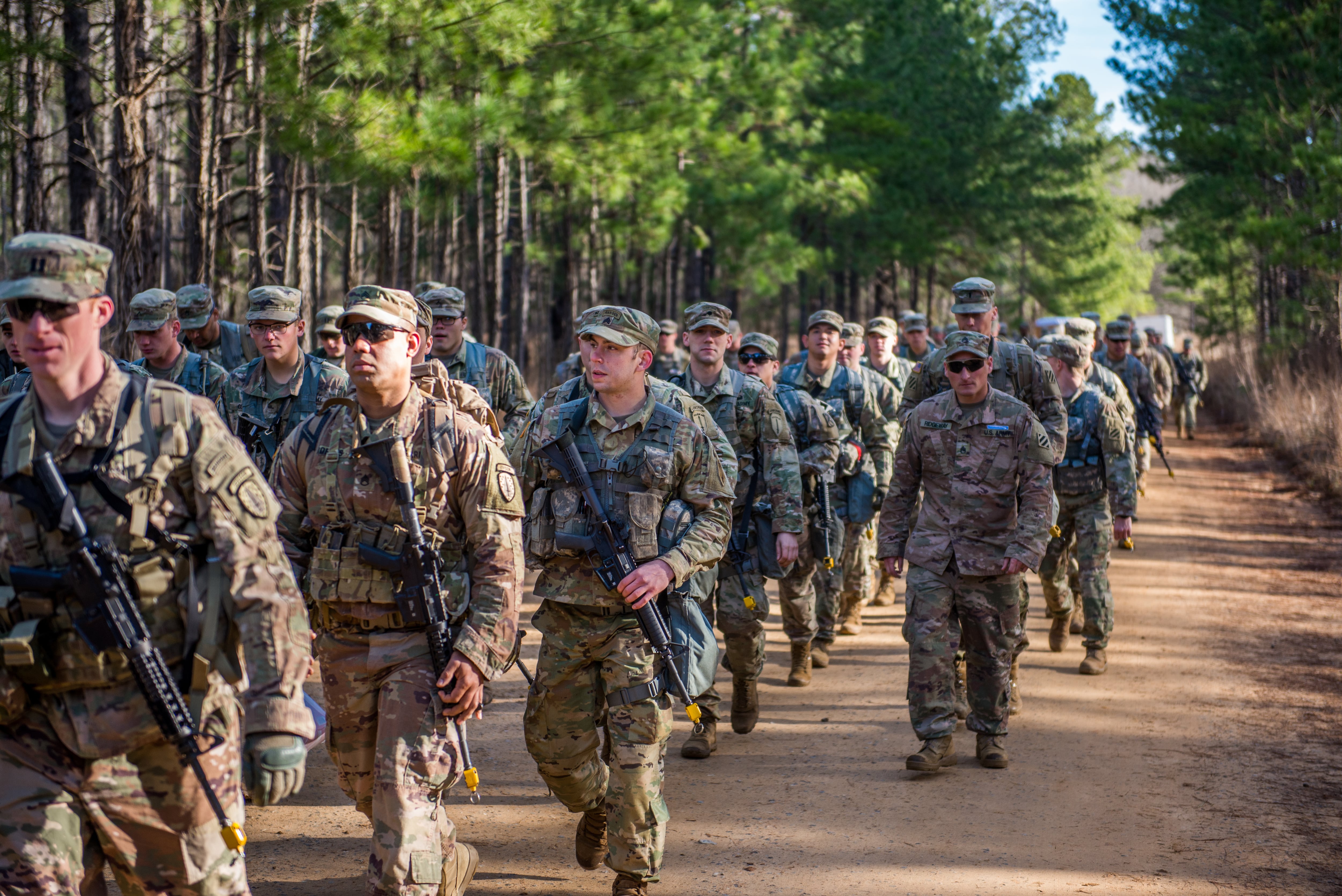The Army’s top leaders say they are ramping up restrictions on soldiers as coronavirus cases increase across the force and internal memos acknowledge that Army policies so far have been ineffective in combating the pandemic.
At a briefing with reporters Thursday, the Army secretary and chief of staff were asked about the inconsistencies in current rules between units and the hesitation to institute restrictions earlier, especially given that they watched for weeks as the coronavirus limited U.S. training in Europe and Asia.
Weighing the risk of infection against the need to train has been a “tenuous balance,” said Army Sec. Ryan McCarthy. “This is a day-to-day assessment and we’ll take the appropriate measures accordingly.”
An internal fragmentary order sent Thursday called the Army’s own efforts thus far “insufficient,” and said “additional measures and actions are required” to combat the spread of coronavirus among personnel.
“What we’ve been doing is watching the threat, so to speak," Army Chief of Staff Gen. James McConville said. “As the threat becomes more prevalent, we are ramping up the procedures and we’re also checking and getting back-briefs from commanders and making sure they understand the guidance as far as how they limit exposure and we’re taking some of that risk off of them.”
The Army currently has a total of 288 confirmed cases of coronavirus among its personnel, out of about 5,000 tests that have been conducted. That number includes 100 soldiers, 65 dependents, 64 civilian employees, 50 contractors and 9 cadets.
Across the force, soldiers told Army Times this week they were concerned by their commanders’ decisions to continue to train and hold formations. The Army ultimately issued a new order Wednesday, restricting work to essential personnel only and limiting access points onto bases.
RELATED

Some uncertainty stems from the fact the Army does not have a single definition for “essential” tasks and personnel, giving local commanders wide discretion for how the force-wide orders are implemented on the local level.
Each of these commanders are making trade-offs, and senior leaders are in touch with them, McConville said. But he acknowledged that more needs to be done.
“I think we need to do more to limit exposure, especially for those who are not doing mission-essential tasks. That’s what we’re really saying right now," McConville added.
Many troops have described the Army’s response thus far as reactive. One senior warrant officer said that mid-level leaders were “paralyzed with indecision" as the pandemic began to require more restrictions at each post.
“They stall, hoping that a higher command will make the decision for them," the soldier told Army Times previously.
McConville said he’s been receiving input from with U.S. Army Africa commanding general Maj. Gen. Roger Cloutier, who is based in Italy, and U.S. Forces Korea commander Gen. Robert Abrams, both of whom are in “hotspots” for the virus.
Those leaders have received good press for their handling of the pandemic in their respective ares, but McConville pushed back against the idea that U.S.-based commanders aren’t taking similar measures.
“We shut down gyms in the States; they didn’t shut down gyms," McConville said. “So there’s some measures here that are actually much more severe than what they’re doing in Korea.”
The Army is also limited by the amount of test kits it has, a problem that is similar across civilian hospitals. Many soldiers have complained to Army Times about the availability of testing at various posts. Currently, the service has about 19,000 tests available that were supplied by the Department of Health and Human Services.
Developing countermeasures to the virus — like vaccines and more test kits — will take time, said Army surgeon general Lt. Gen. Scott Dingle. In the interim, “we have to limit the exposure, what I call the discipline of social distancing,” he added.
Dingle said he does not know how many tests they’ll eventually need, but noted that the demand is trending upwards.
“We are hoping it’s seasonal and that trend will come down, but again, this is new for us, this is complex, it’s is new territory,” Dingle said.
Kyle Rempfer was an editor and reporter who has covered combat operations, criminal cases, foreign military assistance and training accidents. Before entering journalism, Kyle served in U.S. Air Force Special Tactics and deployed in 2014 to Paktika Province, Afghanistan, and Baghdad, Iraq.




